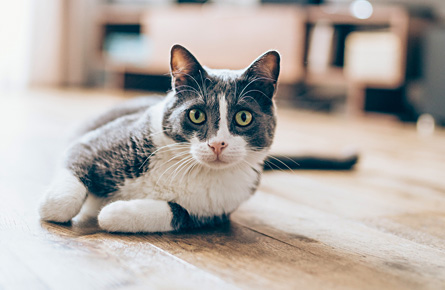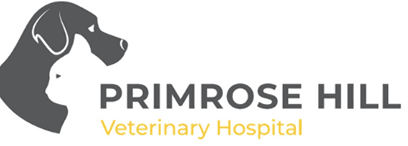Cats reach reproductive maturity rapidly; we follow the RSPCA and Cats Protection guidelines recommending neutering both female and male cats around four months of age. Spaying a female cat involves removing their ovaries and uterus. Castrating a male cat involves removing both of their testes.
 Neutering/spaying your cat benefits:
Neutering/spaying your cat benefits:
-
Prevents unwanted pregnancies and womb infections
-
Can help prevent tumours and breast cancer
-
Can also help prevent testicular cancer and prostate disease
-
Assists in preventing roaming and aggressive behaviour
It’s normal to neuter!
*PSDA Paws report 2020
Should I let my cat have one litter before spaying her?
This happens to be a common question, and there are no known health benefits to letting your cat have a litter; this is also the same for dogs and rabbits.
General anaesthesia
Your pet requires a general anaesthetic for neutering; here at Primrose Hill Veterinary Hospital, we have measures in place to ensure their safety during the procedure. A dedicated Registered Veterinary Nurse (RVN) will monitor your pet throughout their surgery and recovery. All anaesthesia comes with some form of risk; however, these are very low, especially neutering, as pets are often young, fit, and healthy when having this procedure.
Risk levels of anaesthesia increase with a pet’s age, certain breeds and if your pet has any underlying health conditions. We can perform a pre-anaesthetic blood test before your pet’s surgery to detect any underlying illnesses; this can be discussed when booking in for the procedure and on the day of their surgery. Your pet will receive a premedication to relax them and will also receive two types of pain relief. Rest assured the Primrose Hill Veterinary Hospital's team will be with your pet every step of the way.
Your pet will stay the day with us
On admission, we will discuss the procedure and go through the consent form. Please note we must gain a signature from the registered owner (over 18) or authorised agent on the consent form. Your dog, cat or rabbit will be admitted as a ‘day patient’, and they will be discharged later that day once our team are happy with how your pet has recovered. During your pet’s discharge appointment, the team will go through everything you need to know about caring for your pet after their surgery and their pain relief medication. We are always at the end of the telephone for you and your pet, so please contact us if you have any further questions once you have your pet settled back at home.
Please bring your cat in a secure cat basket with a blanket that smells of home. Cats are territorial creatures who prefer to stay in areas familiar to them.




Follow Us: